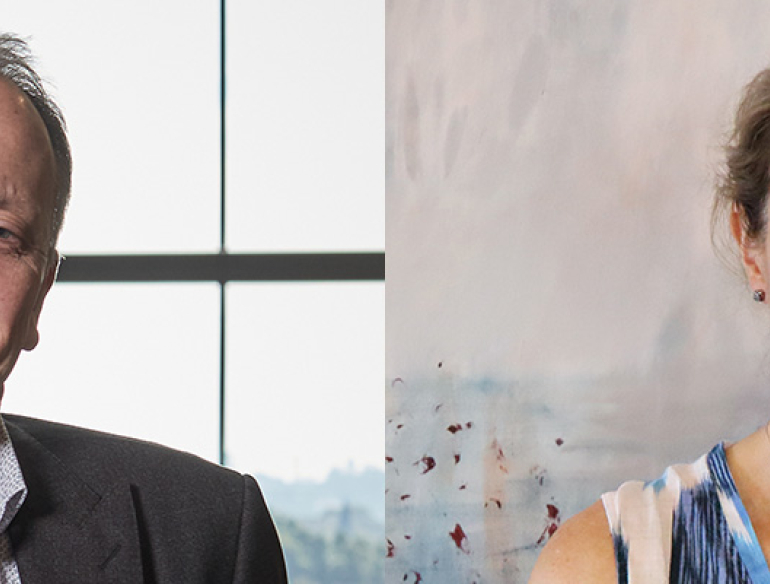The Kirby Institute’s Scientia Professor Gregory Dore and Dr Louise Causer have received NSW Premier’s Prizes for Science and Engineering.
Prof. Dore was awarded the Premier’s Prize for Science and Engineering for Excellence in Medical Biological Sciences (Cell and molecular, medical, veterinary and genetics) in recognition of his leading research on hepatitis C epidemiology and treatment, particularly for underserved populations including people who inject drugs and people who are incarcerated.
Following his early research on the natural history and epidemiology of hepatitis C, Prof. Dore’s work has centred on evaluating hepatitis C treatment strategies for acute and chronic hepatitis C infection, particularly for people who inject drugs and people who are incarcerated. He played a leading role in the 2016 PBS listing of direct acting antiviral (DAA) therapy which has since seen over 90,000 Australians living with hepatitis C infection receive curative treatment, and has led seminal studies delivering DAA therapies to those at-risk populations, demonstrating the safety and efficacy of the treatment and making the case for equitable access. This work has informed national and international hepatitis C treatment guidelines.
Of the award, Prof. Dore says “The Premier’s Award is a wonderful acknowledgment of the great academic and professional team I work with at Kirby Institute, and the importance of our work for vulnerable populations.”
Dr Causer received the Premier’s Prize for Science and Engineering for NSW Early Career Researcher of the Year (Biological Sciences) for her extensive work on the evaluation of decentralised diagnostics for infectious diseases and implementation into clinical practice, especially in remote Australian communities.
With unacceptably high rates of poor reproductive health outcomes due to untreated but curable sexually transmissible infections, Dr Causer’s work on point-of-care diagnostics has contributed to increased access to testing and timeliness of treatment. Performed by clinical staff in primary health services, point-of-care testing delivers rapid results, enabling patients to commence treatment if necessary within the same clinic visit. This more timely diagnosis and treatment of sexually transmissible infections has the potential to significantly reduce disproportionately poor reproductive health outcomes, particularly for women living in remote areas.
“I am honoured to receive this award and to have my research contribution recognised in this way,” says Dr Causer. “My work is highly collaborative and I acknowledge the support of my academic colleagues and strong, committed relationships with many health partners. This award will facilitate opportunities to continue my research to improve the health and well-being of populations disproportionately affected by infectious diseases.”
The NSW Premier's Prizes for Science & Engineering seek to recognise excellence in science and engineering, and reward leading researchers for cutting-edge work that has generated economic, environmental, health, social or technological benefits for NSW. The Prizes aim to raise community awareness and appreciation of the important contribution scientists and engineers make to our daily lives, and encourage careers in both fields.
Header Image
Scientia Professor Gregory Dore and Dr Louise Causer
